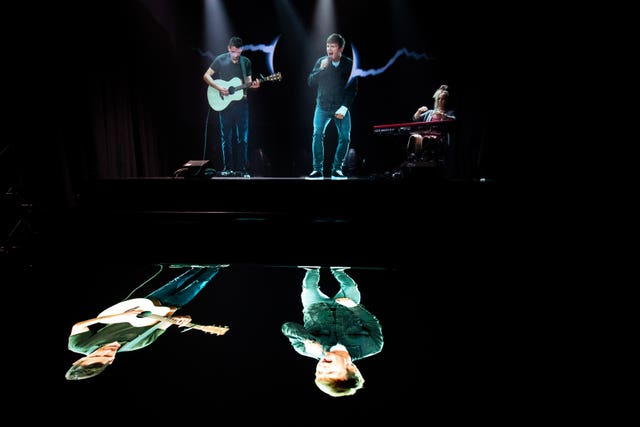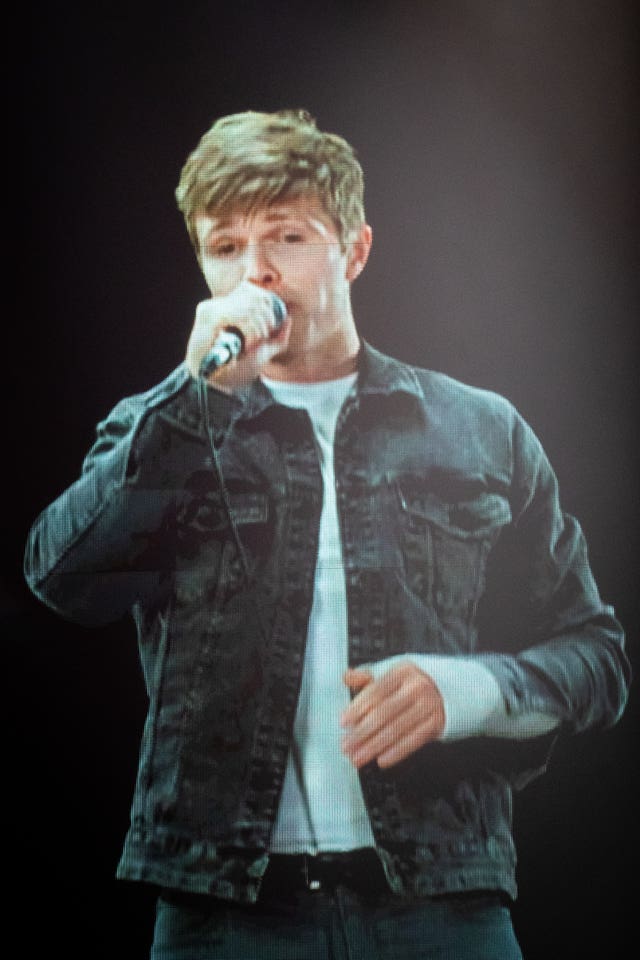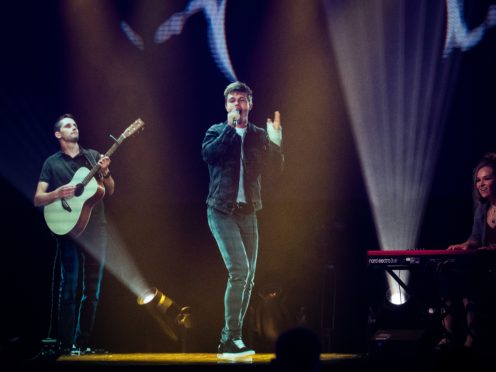New 3D hologram technology could be the solution to a dearth of live music during the coronavirus pandemic, according to one artist.
Singer-songwriter Dan Olsen launched the technology, created by Musion 3D, during a performance at a central London hotel in front of a socially-distanced audience of some 40 people.
Olsen, who is from the Faroe Islands but has been living in London for the last six years, performed live from a studio in Mile End, east London, with his hologram projected into the room via the internet.
Its creators claim the Fanshare technology will offer musicians a way to connect with their audience while venues remain closed and concerts socially distanced.
The performer is able to see their audience on a screen and react in real time.
After performing a four-song set, Olsen told the PA news agency: “I think this might be a solution. The timing of this now, coming up with this while there is no live music.
“If people see this they might go, ‘Hey’. All of a sudden you can play to all the countries around the world. No problem.
“As long as you have the technology and the devices there it’s possible. I can see this being a good solution for it.”

He added: “We have been in lockdown for so many months now. There was no live music, you couldn’t play to any audiences.
“We have been craving it as much as people have been craving live music.
“We have been craving playing to live audiences and having that connection.
“It’s as close to real life as it can be because you see the audience there, you see their reactions, you can pick people out, you have them singing or clapping along.
“It’s a really nice feeling afterwards to have been able to do a show like that and to see that this is possible.”

Olsen performed from the same room as his guitarist in Mile End, while a keyboardist played along live in central London.
The session was not without issue as the holograms froze briefly as Olsen began the third song of his set, before resuming movement.
Musion, who launched the technology in 2007, was responsible for Tupac’s posthumous appearance as a hologram alongside Snoop Dogg and Dr Dre at Coachella Festival in 2012.
The firm has also developed 3D holographic technology for stars including Madonna, The Black Eyed Peas and Rihanna.
Ian O’Connell, a founding director of Musion, told PA: “My vision for this technology is to have an ecosystem comprising of stage artists – by that I mean musicians, comedians, dancers – who are able to perform their art within a mile of their home or place of work.”
He said he hoped to “enable live stage performers to go from home to phone”.

Speaking about the performance, he added: “Overall I am absolutely delighted.
“For me, it didn’t bother me that we had that glitch today because if we hadn’t had that glitch people would have said this was easy – and it wasn’t.
“We have spent a week getting this fine tuned because we want to take this to local pubs, we want to take this to people’s homes and we want to be able to take it to small recording studios, all of whom will still have the same kind of bandwidth issues that we had with the studio in Mile End today.”
